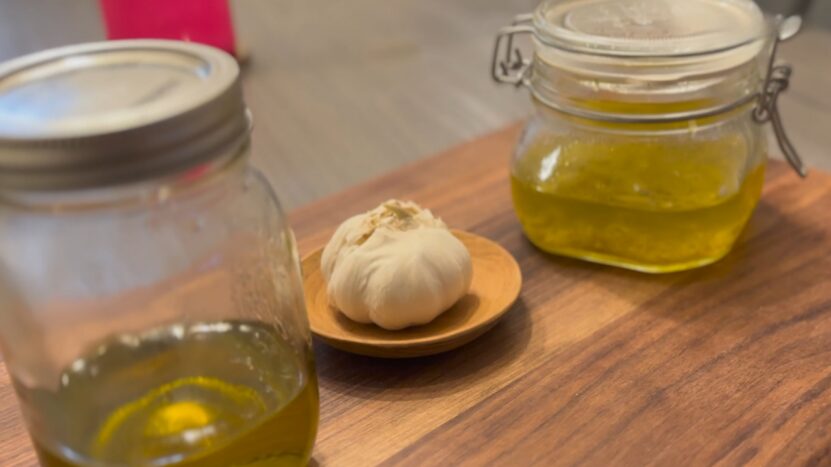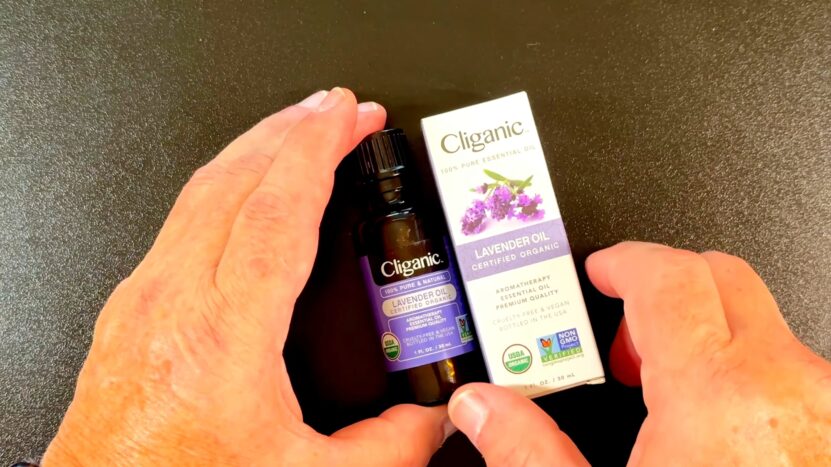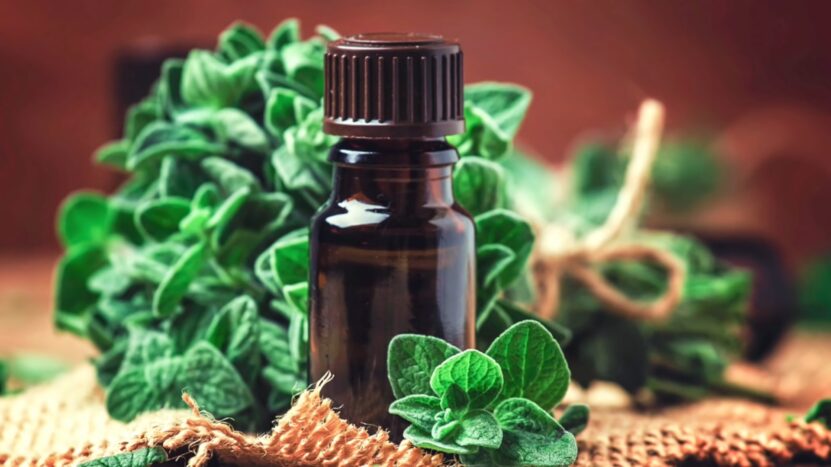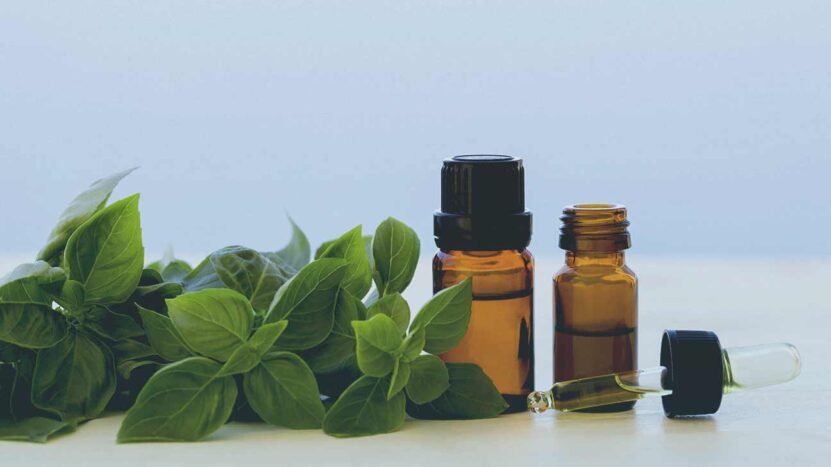The unique mix of compounds in each essential oil gives it specific characteristics and therapeutic properties. These properties can include antibacterial, antiviral, anti-inflammatory, and analgesic (pain-relieving) effects, which are particularly relevant in treating ear infections.
In recent years, the use of essential oils as a complementary treatment has gained attention. These oils, extracted from plants, possess various properties that may be beneficial in managing ear infections.
We’ll explore the potential of essential oils in treating these infections, focusing on their properties, effectiveness, and how they compare to traditional treatments.
Top Essential Oils for Ear Infections
1. Tea Tree Oil

Tea tree oil is renowned for its potent antiseptic properties. It is derived from the leaves of the Melaleuca alternifolia tree, native to Australia. This essential oil is known for its ability to fight bacteria, viruses, and fungi, making it a strong candidate for treating ear infections, particularly those caused by bacteria.
A study published in the “Journal of Antimicrobial Chemotherapy” found that tea tree oil could effectively kill a range of bacteria, including those commonly responsible for ear infections.
2. Garlic Oil

Garlic oil, extracted from garlic cloves, has been used for centuries for its medicinal properties. It contains allicin, a compound known for its antimicrobial effects. Research indicates that garlic oil can be effective against various bacteria, including some that cause ear infections.
A study in the “Journal of Natural Medicines” highlighted garlic oil’s ability to inhibit bacterial growth, suggesting its potential as a complementary treatment for ear infections.
3. Lavender Oil

Lavender oil, extracted from the flowers of the Lavandula angustifolia plant, is widely used for its calming and relaxing effects. It also possesses anti-inflammatory properties, which can be beneficial in reducing the swelling and pain associated with ear infections.
A study in the “European Journal of Pharmaceutical Sciences” demonstrated lavender oil’s ability to reduce inflammation, indicating its potential role in managing ear infection symptoms.
Safety Considerations

While essential oils offer potential benefits for treating ear infections, it’s crucial to understand the risks involved. These are highly concentrated and can cause skin irritation or allergic reactions in some individuals.
It’s important to perform a patch test before using any new oil and to dilute essential oils with carrier oil before applying them to the skin.
Proper Usage and Application
It’s essential to use essential oils correctly to avoid any adverse effects. As mentioned earlier, they should not be applied directly inside the ear. Instead, they can be diluted and applied around the ear or inhaled through a diffuser.
Consulting with a healthcare professional before using these oils, especially for children or individuals with pre-existing conditions, is always advisable.
Choosing Quality Oils
The quality of essential oils can vary significantly. It’s important to choose high-quality, pure essential oils from reputable sources. Look for oils that are labeled as “100% pure essential oil” and avoid those with additives or synthetic ingredients.
Higher-quality oils are more likely to provide the therapeutic benefits you’re seeking and reduce the risk of adverse reactions.
Application Methods
When using these oils for ear infections, direct application inside the ear canal is generally discouraged. Instead, the oils should be diluted with carrier oil, like coconut or olive oil, and applied around the outer ear and behind the ear.
This method can provide localized relief from pain and inflammation. It’s crucial to ensure that the oil does not enter the ear canal, as this can exacerbate symptoms or cause additional complications.
Aromatherapy and Inhalation Techniques
Aromatherapy, primarily through inhalation, is another way to utilize essential oils for ear infections. Diffusers can disperse the oil into the air, allowing for easy inhalation. This method can help in reducing inflammation and pain, as well as offering overall relaxation, which can be beneficial during illness.
Inhalation is a non-invasive and gentle way to experience the benefits of these oils, making it suitable for most people, including children, with proper supervision.
Warm Compresses
Applying a warm compress infused with essential oils can be soothing for ear infection symptoms. To do this, add a few drops of diluted essential oil to a warm, damp cloth and place it around the affected ear.
The warmth can help alleviate pain, while the oils can contribute their therapeutic properties through both skin absorption and inhalation.
Additional Oils Beneficial for Ear Infections

Basil Oil for Its Antimicrobial Properties
Basil essential oil is known for its antimicrobial properties, which can be beneficial in treating ear infections. It can inhibit the growth of bacteria and reduce inflammation.
A study in the “International Journal of Aromatherapy” highlighted basil oil’s effectiveness against various strains of bacteria, including those that can cause ear infections.
- Oregano Oil: Oregano oil is another powerful essential oil with strong antibacterial and antiviral properties. It can be particularly effective against antibiotic-resistant bacteria, as shown in various studies. However, due to its potency, oregano oil should be used with caution and always diluted.
- Eucalyptus Oil for Its Anti-inflammatory Effects: Eucalyptus oil is commonly used for its anti-inflammatory and decongestant properties. It can help in reducing the pain and pressure associated with ear infections. Inhalation of eucalyptus oil can also aid in clearing the nasal passages, which can be beneficial in cases of ear infections related to sinus issues.
Complementary Use with Antibiotics
While essential oils can offer symptomatic relief and possess antimicrobial properties, they should not replace conventional medical treatments, especially in severe cases. However, they can be used as a complementary approach alongside antibiotics prescribed for ear infections.
It’s important to discuss with a healthcare provider before combining essential oils with other medications to ensure safety and avoid any potential interactions.
Preventative Care
Essential oils can also play a role in the preventative care of ear infections. Regular use of certain oils with antimicrobial properties can potentially reduce the frequency of infections, especially in individuals prone to recurrent issues.
However, preventative use should be approached cautiously, with consideration of the individual’s overall health and sensitivity to essential oils.
Consulting with Healthcare Professionals
Consulting with a healthcare professional is crucial before using essential oils as part of an ear infection treatment plan, especially for children, pregnant women, or individuals with pre-existing health conditions.
A professional can provide guidance on the appropriate oils, dilution ratios, and application methods, ensuring the safe and effective use of oils.
FAQs
Can essential oils help in speeding up the recovery from an ear infection?
These oils may assist in reducing symptoms and providing comfort during an ear infection, but there’s limited scientific evidence to suggest they can significantly speed up recovery.
They should be used as a complementary approach alongside prescribed medical treatments.
Are there any specific essential oils that should be avoided for ear infections?
Yes, certain oils like peppermint and wintergreen should be used cautiously or avoided, especially for children, due to their intense nature and potential irritant effects. Always consult a healthcare professional before using any essential oil, especially for ear infections.
Is it safe to use essential oils for ear infections in infants and toddlers?
You should be cautious with this. Some oils can be too potent for young children. It’s essential to consult a pediatrician before using these oils as a treatment in young children.
Can essential oils cause any side effects when used for ear infections?
Yes, they can cause side effects such as skin irritation, allergic reactions, and sensitivity issues, especially if not diluted properly. Performing a patch test and using oils under professional guidance can help minimize these risks.
How often should essential oils be applied for treating ear infections?
The frequency of application depends on the type of oil and the individual’s condition. Generally, a few times a day, after diluting the oil appropriately, is sufficient. However, it’s best to follow the guidance of a healthcare professional for specific recommendations.
Can essential oils interact with other medications used for ear infections?
There’s a possibility. Although such interactions are not commonly reported, it’s important to discuss with a healthcare provider before combining the oils with any medications, to ensure safety and efficacy.
Summary
In conclusion, essential oils offer a range of benefits that can be utilized in the treatment and management of ear infections. From tea tree oil’s antiseptic properties to eucalyptus oil’s anti-inflammatory effects, these natural remedies can provide relief and complement conventional treatments.
However, it’s essential to use them safely and under the guidance of a healthcare professional.
